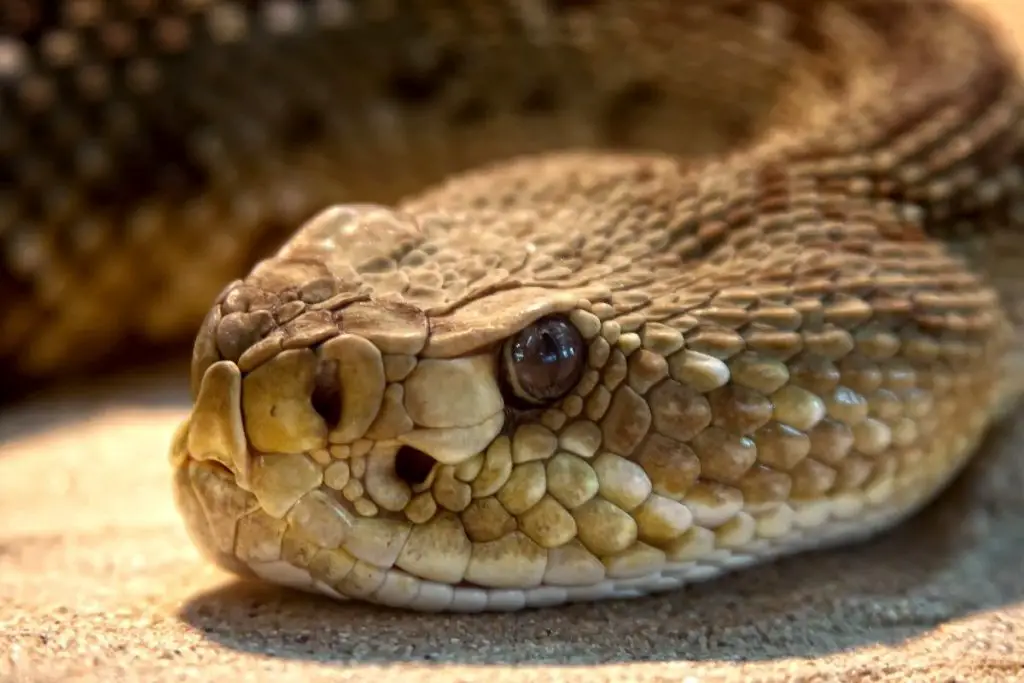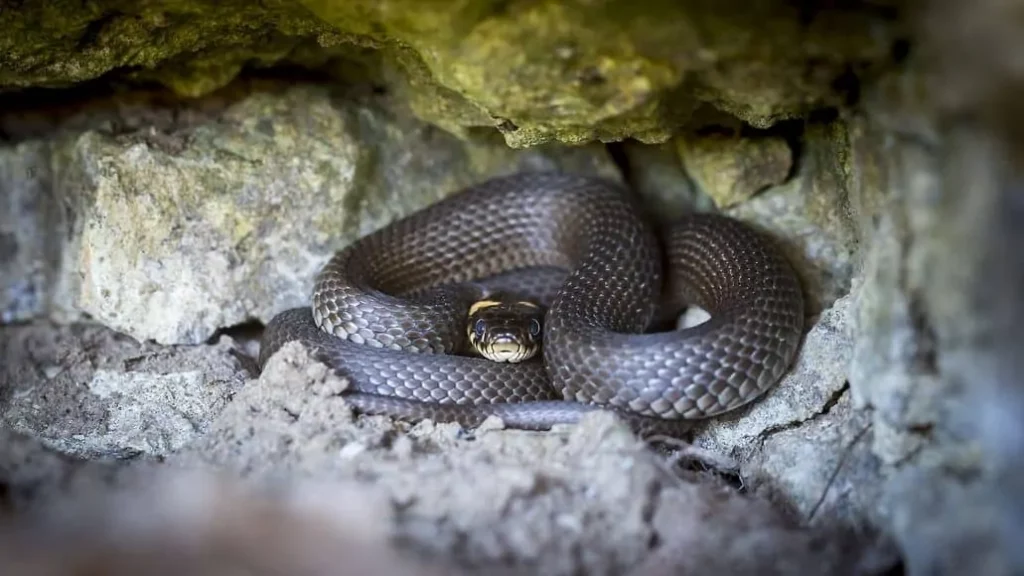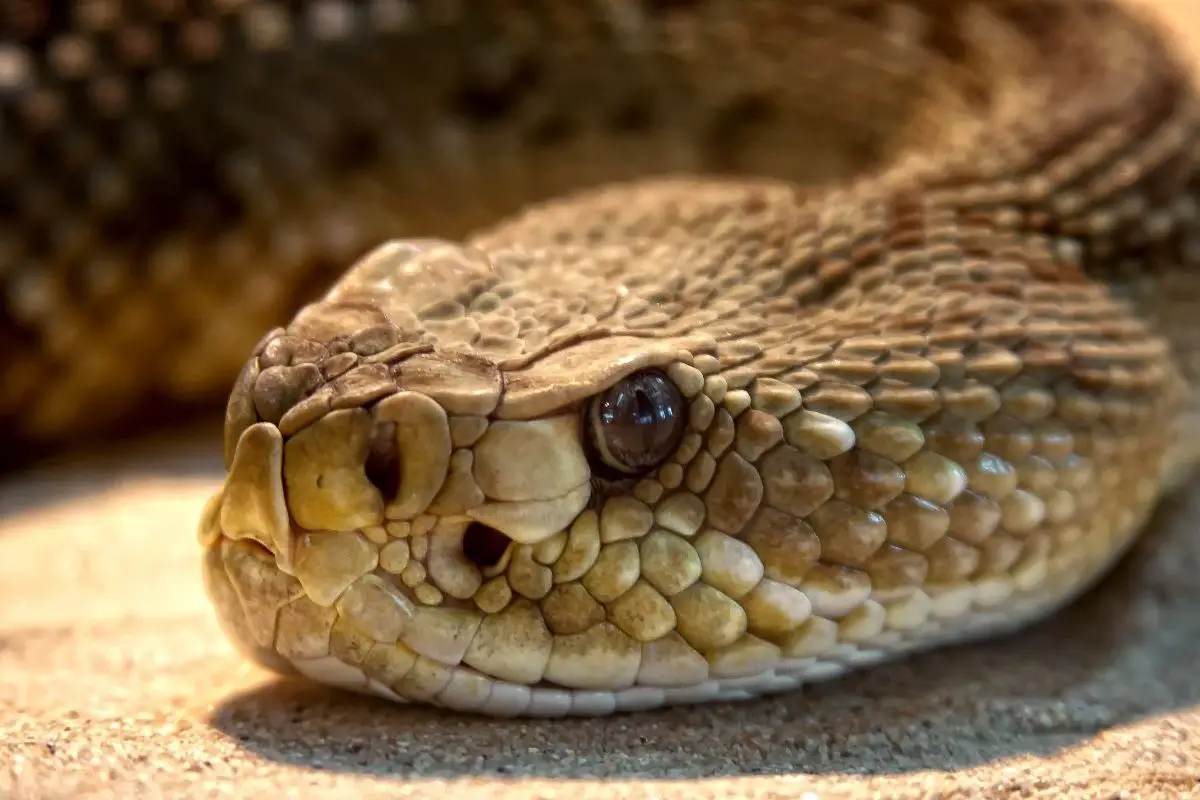Snakes are mysterious creatures, and because humans have such instinctive fear of snakes, we have not studied them nearly as much as we have with other animals, so there are a lot of myths and misconceptions about snakes that are going around, and some of them are just pure entertaining.
You may have heard some of them, such as that snakes travel in pairs, that a snake will take revenge, and that snakes will live until sundown after being beheaded.
Another very common one, for some unknown reason, is that snakes will live after being cut in half. Now this one is just hilarious to me. First off, let’s address it seriously.
So, can snakes live if cut in half? Snakes will not live if cut in half and will quickly die when you cut them in half, but the snake will take longer to die and may live for a few more minutes or even hours. The only serious injury snakes may be able to survive is if their tail is cut, and still, that would kill some snakes. The reason you can’t find the remains of the snake is that it was probably eaten by another animal, most probably your cat.
So, yeah, if you have killed a snake in your house and can’t find its remains, maybe check your dog or cat to see if they had anything to do with it.
In this article, we are going to discuss what actually kills a snake, what kinds of injuries can snakes survive and what they can’t, and we are going to talk about the common misconceptions about snakes.
Contents
Why Snakes Don’t Die Right Away After You Kill Them

Some people believe that snakes can bite even after you cut their head off, and strangely enough, this is actually true.
Snakes can bite and even inject venom minutes or hours after you cut their head off, but how is this even possible. To understand why snakes don’t die right away after being beheaded, you will need to learn about the physiology of snakes.
Snakes are cold-blooded creatures, what is scientifically referred to as “ectotherms” which means they don’t create their own body heat. Instead, they rely on outside sources such as the sun and other heat sources in their environments.
This is both advantageous and disadvantageous for snakes. On one hand, they don’t need a constant supply of blood to the brain to stay functioning, but on the other hand, snakes can’t survive for long without a heat source. You can learn more about what happens to snakes when they stay without heat for long in this article.
Snakes also don’t need as much oxygen for their brains to function, unlike mammals.
What does this mean? It means that when a mammal is beheaded, they lose its blood and oxygen supply to their brain, and will die very quickly, but that’s not what happens with snakes.
When you behead a snake, their brains will remain functioning for minutes or even hours, which means that their instinctive reaction to threats (to strike and inject venom) will be very much active even after the snake is beheaded, and a snake will strike and inject venom in a person even hours after the person killed the snake.
There are actually some recorded incidents of this happening.
Why do snakes go in houses?

Snakes will go in houses to find food, mate, and heat. Snakes may also go in houses to hibernate during the winter months and to stay safe from large predators.
Snakes do not go in houses to attack people, and will usually try to stay away from people and their pets and will try to keep a low profile and stay hidden.
Unfortunately, snakes don’t leave any traces behind them that can tell you that there is a snake in your house, and you will only discover there is a snake in your house through a chance encounter that the snake could not anticipate.
Should you kill a snake you find in your house?
You should not kill a snake you find in your house, and should instead call a professional that will try to capture it and release it outside. Snakes are beneficial animals that help keep the rodent population down, and they can also be a food source for other predators.
What actually kills a snake?
Snakes are not magic creatures, and they die from all the things all other living things die from. They can die from trauma, injuries, and blood loss. In nature and in captivity, snakes also die from diseases and predators.
What injuries can a snake survive?
The only serious injury a snake can actually survive is the cutting of its tail. Anything past the vent will not kill the snake (probably), and the vent is located somewhere near 7/8th of the way to their tip of the tail.
Why do dead snakes move?
As the dying nerves fire off, a snake’s body will jerk randomly. You, too, would be disturbed by this. Reptile bodies tend to survive longer because they are more efficient and require less oxygen, so death occurs at a slower rate. However, a snake’s severed body does not make attacking motions – it lacks a brain. It has been proven that a snake can live for days after being cut in half if the body is kept moist.
Conclusion
There are a lot of misconceptions and myths about snakes, and most of them are nonsense. Snakes can survive for maybe a few minutes or hours after being cut in half, but the snake will eventually die and will not get away.
Snakes can actually survive for hours and even strike after being beheaded, but that’s mainly due to their physiology as their cold-blooded animals.
If you do happen upon a snake in your yard or your house, you are advised to call a professional to deal with them. In my case, I’ve found that keeping a cat or a dog really dramatically reduces the chances of snakes creeping into the house or around it as they are scared of the pets. You can learn more about the dogs that kill snakes here, and how cats detect snakes here.
Related Questions
How long can a snake live after its head is cut off?
Snakes can survive up to a few minutes or even hours after their head is cut off.
Do dead snakes attract other snakes?
A dead female snake can attract a male snake if it’s during the breeding season indeed.
Can a snake survive a wound?
Snakes can survive some wounds due to their physiology as cold-blooded creatures, but most snakes will die off their wounds due to blood loss and trauma after a while, it just may take more time than it would with a mammal.
Helpful Resources
Can a Severed Snake Head Still Kill? It’s Possible
If you like this article, please share it!

